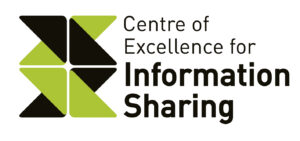Using and sharing information to support the health needs of communities is something local hospitals, GPs and health professionals are already familiar with. Vikki Cochran, Data Protection and Freedom of Information Lead at South Devon Healthcare NHS Foundation Trust, has been instrumental in tackling the practical challenges of sharing information more widely. Here she explains how she and others went about breaking down barriers...

Our approach was collaborative, but not death by committee. We had agreement and commitment from clinical commissioning groups, acute providers, community providers, independent sector organisations and our local hospice that something had to be done.
We created a sub group, made up of information governance (IG) experts, each bringing to the group their own policies and documents, so that we could use the existing process to create something robust and consistent. We used national guidance, NHS England and Health Social Care Informatics Centre (HSCIC) had some good resources and we sat in a darkened room until we came up with our South Devon & Torbay Information Sharing toolkit – a group of documents that we brought together that fit our needs.
Now, you and I know, there are lots of toolkits out there which lie untouched, gathering dust. The reason: because they are too hard to use and not enough thought is given to who the audience is. That was our other driving force: not only did we want best practice, we wanted best practice you could actually use. Everything we did was reviewed to make sure it was easy to understand and could be completed without the need for a PhD in Information Governance.

In February of this year, we took our tried and tested documents, together with our learning from the pilot projects, to our Information Sharing Group. The group ratified the documents and each lead was tasked with going back to their organisations to ensure the toolkit was agreed by their own equivalent steering groups.
So have we solved the information sharing problem? I don’t want to speak to soon, but the outlook is looking really good. What we achieved was not impossible, but it took a lot of hard work, collaboration and a desire to do something positive.
Having gone through this, my advice to other places embarking on this challenge would be to seek best practice from far and wide and use it to shape your local approach. There is plenty of useful information on the CEIS website and we are keen to share the work we have done with any organisation which may find it useful.
8 comments
Comment by Jeff Hughes psychologist.uk posted on
I was sad to see that the list was all nhs and did not include local authority social care education schools and colleges. Cracking the secure sharing of information with all services working with everyone especially children young people and vulnerable adults should be the aim!
Comment by Mike Clark posted on
For a social care blog, there is little information in the article or the toolkit covering how social care has been involved and how care as well as health outcomes will be improved for citizens as part of an integrated approach. Is it possible to draw out a few key points from the work done - Many thanks.
Comment by Trevor Fossey posted on
No mention of sharing information with the person/patient to whom it refers. A patient-centred approach engages the patient and generally results in improved wellbeing as an outcome.
Comment by Trish Talbot posted on
A lot of words have been used to tell us virtually nothing. I hope the "Toolkit" includes measures to supply information in accessible format - Braille, audio, sign language etc, and that alternative formats are made easily available to those who need them.
Comment by Ken Thomas posted on
Sharing is good provided there are safeguards for peoples records. Should insurance companies have access to peoples medical records? Should employers have access to peoples medical records? Should a company doctor have free access to an employees medical records? Where does it stop? Will it expand to the police force being allowed access to peoples medical records? If we are to consider sharing the sensitive information of peoples medical history then the placement of safeguards must be part of that consideration
Comment by Kate Blair posted on
Now that is an oxymoron' data sharing doctor's records and outlook is looking very good'. Same as the claim 'no voice unheard and no right ignored'. The original launch of the GP data sharing scheme was shambolic and as the explanation leaflet was delivered with a pile of junk mail a lot of people were completely unaware it was happening. Since then the handling has not got any better.
I along with thousands of others concerned about extremely sensitive medical data being available outside of our GPs surgeries in writing opted out. The data may have names etc redacted but with time, knowledge etc individuals could still have been identified. Now after the election it has emerged that there are issues with the 700 000 opt outs from the scheme not being honoured.
Comment by Louise Wells posted on
Thank you for your comments. Although it has not been made explicitly clear in this short blog, the approach in South Devon and Torbay has been signed up to by both health and social care organisations, with an ambition to involve other sectors such as the voluntary and education sectors as the programme develops. When creating the Toolkit, Devon worked with IG professionals across the Local Authority and within the integrated organisation, who were able to feedback using their knowledge of some of the specific challenges involved.
In terms of social care involvement, Devon have in place one of the few Health and Care Trusts, which was a pioneer in Integrated Health and Social Care formed several years ago.
Over the past few weeks, Devon have been working on the Integrated Personal Care programme and are in the process of reviewing the Information Sharing Toolkit in line with this project to understand that if it meets the needs of the organisations involved, including the third sector. This may lead to amendments to the existing Toolkit or a slightly amended specific suite of documents for this purpose. All documentation will of course be available from the Centre of Excellence once it is completed.
As part of ongoing communications, a large emphasis has been placed on developing patient information with easy read versions which are available to anyone who may need them.
Further information about this work is available on the Centre of Excellence for Information Sharing website where the detailed blog is also available. We appreciate your feedback and will use this to help shape the information we provide. We aim to provide ongoing updates as this work develops which will include details about user involvement, learning from the pilot work and engaging hard to reach groups.
If you would like to know more, please get in touch through the Centre of Excellence for Information Sharing.
Comment by termite posted on
No matter what promises the NHS makes, I would never trust them.
I have suffered mental illness but am a trained nurse.
I attended hospital fro assessment re knee surgery.
the first line of my hospital report stated ... quote / this is an elderly lady that suffers depression and self harms ... end quote .... so what about my knees?
I am currently seeing my GP re borderline anaemia and was prescribed antidepressants ... yet I am not depressed!
Once you are know to have been in a mental health system you are doomed, everyone thinks you don't have a brain, can't thinks for yourself and have spent your life on benefits.
I have never in my life been unemployed, I worked for the NHS all my life but still they think I am a sandwich short of a picnic, and now they want to hand out sensitive information to other agencies to add further to my distress ... over my dead body!